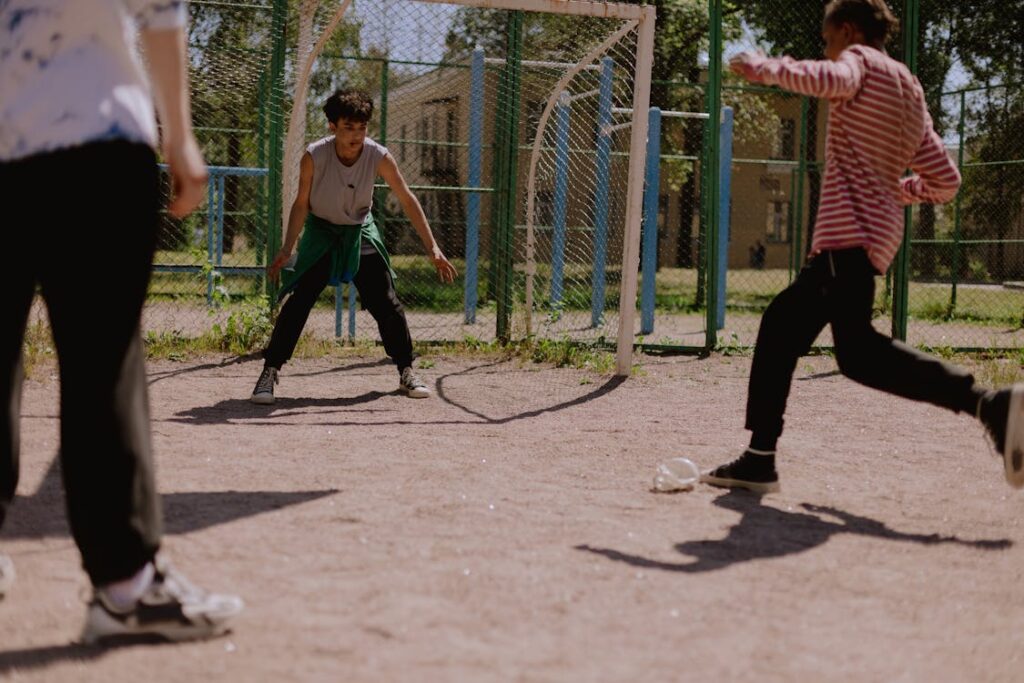Maintaining a healthy lifestyle can often take a backseat to our busy schedules, especially when we are overwhelmed with appointments, meetings and so on. However, it is extremely important to stay active through sports. Engaging in regular physical activity offers countless of health benefits of sports that extend beyond just physical well-being. Studies have shown that mental positivity and social benefits are also among the advantages that sport has to offer.
That said, we are now uncovering the benefits for each of the three spheres and try to offer better insights into what happens when we practice sports, any kind of it.
Physical Health Benefits of sports

One of the most significant benefits of engaging in sports is improved cardiovascular health. Regular physical activity strengthens our heart, enhances blood circulation, and reduces the risk of heart diseases. According to the American Heart Association, adults who engage in at least 150 minutes of moderate-intensity aerobic activity per week have a lower risk of developing cardiovascular diseases. Sports also play a significant role in weight management. Running, swimming, and cycling, to mention a few, help burn calories and maintain a healthy weight. Even though diet is another key factor in this regard, regular physical activity has proven essential for preventing obesity.
Needless to say, participating in sports contribute to build muscle strength and improve flexibility. Weight-bearing training, such as for basketball and tennis, enhance bone density and reduce the risk of osteoporosis, especially in women. Additionally, sports that involve stretching, like yoga and gymnastics, improve flexibility and joint health. A variety of sports may help us develop our breathing capacity: this is the case of swimming, rowing, or running.
Then there is Mental Health Benefits of sports

Feeling stressed out because of too much work or study? Engaging in sports is an excellent way to reduce stress and anxiety. Scientists would say it is a mere matter of chemistry. Physical activity stimulates the production of endorphins, the body’s natural mood lifters. A large number of studies have shown that exercise can help alleviate symptoms of depression and anxiety, providing a natural and effective way to manage stress. Seeing is believing!
Worried about forgetting things, names, and dates? Regular physical activity can also be a solution. Sports activities have been linked to improved cognitive function and memory. In fact, exercise increases blood flow to the brain, promoting the growth of new brain cells and enhancing cognitive abilities. The Alzheimer’s Association suggests that staying active can help reduce the risk of cognitive decline and dementia and the positive is, you don’t need to engage in challenging workouts. Walking regularly is enough in this regard.
Physical activity can also be a tool to battle depression because it boosts our energy levels and improves sleep quality, leaving us feeling more refreshed and ready to tackle the day, despite the fatigue of the workout itself. Sports in general contribute to emotional well-being by fostering a sense of accomplishment and boosting self-esteem. Team sports, in particular, enhance social connections and provide a sense of belonging. The camaraderie and support from teammates can significantly improve our mood and overall mental health.
And here we come to Social Benefits.
Sports teach valuable life skills such as teamwork, cooperation, and communication, which are undisputable social abilities since early development. Working together towards a common goal raises a sense of unity and helps develop interpersonal relationships. These skills are essential in everyday life, don’t you agree?
Regular participation in sports has a lot to do with discipline and time management skills. Athletes learn to balance their training schedules with other responsibilities (reading, their life), developing a strong work ethic and the ability to prioritize tasks effectively. These skills contribute to overall success and productivity.
Isn’t it worth trying?
As shown, engaging in sports positively impacts all three aspects, leading to a holistic improvement in health. Physical activity enhances biological health, reduces psychological stress, and encourages social connections, creating a comprehensive approach to well-being.
Overall, staying active helps us live longer, healthier, and happier lives. Even moderate activity, like 30 minutes a day, can make a big difference. Get moving with sports as part of our daily routines is not just about staying fit or lose weight; it’s about embracing a new lifestyle that promotes holistic well-being. Whether it’s the thrill of a competitive game of soccer, the tranquillity of a yoga session, or the companionship of a basketball team, there is a sport for everyone at every age. So, find an activity you love and stay active. Sports specialists can help you choose the right activity for you, but in case you don’t want to go too further with training, start with wandering around your neighbourhood.

 The Life Changing Advantages of Being an Athlete
The Life Changing Advantages of Being an Athlete The Global Appeal of Football: Why It Remains the World’s Most Popular Sport
The Global Appeal of Football: Why It Remains the World’s Most Popular Sport